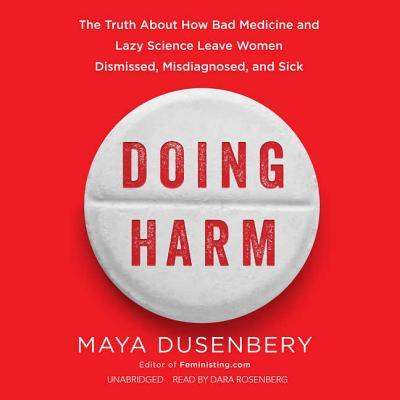What do you think?
Rate this book


Audio CD
First published March 6, 2018
“Often, women's symptoms are brushed off as the result of depression, anxiety, or the all-purpose favorite: stress. Sometimes, they are attributed to women's normal physiological states and cycles: to menstrual cramps, menopause, or even being a new mom. Sometimes, other aspects of their identity seem to take center stage: fat women report that any ailment is blamed on their weight; trans women find that all their symptoms are attributed to hormone therapy; black women are stereotyped as addicts looking for prescription drugs, their reports of pain doubted entirely. Whatever the particular attribution, there is often the same current of distrust: the sense that women are not very accurate judges of when something is really, truly wrong in their bodies.”
